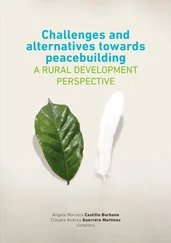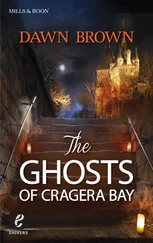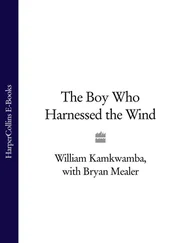If a pig was restless and moving about, he would take off his cap and throw it on the ground. The pig would immediately go over to snuffle at it and bang went the mallet and it was business as usual. The pig was then butchered and stored in a tea chest packed with salt. After three weeks, Jimmy would go back to make sure that every part of the pig was getting properly salted, and to turn it if necessary.
He told me of two brothers who were noted for their prodigious appetites. He killed a pig for them and after three weeks, went back.
‘What do you want?’ said the brothers.
‘I’ve come to turn the pig,’ he said.
‘Well you needn’t have bothered your head,’ they said, ‘for we turned the last of it on the pan this morning.’
In addition to barbering and butchering, Jimmy had another little earner. He was small but also immensely strong. He would go down to the local shop and if there was a stranger there he would bet him ten shillings that he could ‘Lift two six-and-fifties over his head’.
A six-and-fifty was an iron weight used for measuring out bags of meal or flour. It was, as the name suggests, fifty-six pounds, or four stone, or twenty-five kilos in weight, difficult to lift even one of them above your head. The stranger would invariably accept the bet, deceived by Jimmy’s small stature. Jimmy would hoist the weights easily, clink them together above his head and leave with the money. He had no sympathy for the duped victim, merely saying, ‘A fool and his money are easily parted.’
I remember being taken to a football match which has since gone down in legend in local folklore. Our local team was up against a team from the neighbouring parish. As in all local derbies there was fierce rivalry and in the preceding week the big lads at school spoke of little else. Jimmy and his brother were players on the local team.
The received wisdom was that Jimmy was ‘a handy footballer but as wicked as a wasp’ and that his brother, the goalkeeper, was ‘quiet but dangerous when riz’.
A huge crowd from both factions was in attendance. They welcomed their heroes on to the field with wild and raucous tribal yells. Sure enough, after several minor scuffles, a full scale melee developed, the chief protagonists being the goalkeeper and a fearsome character from the opposing team who rejoiced in the nickname ‘Stand Up’ because this was his usual exhortation to his opponents when he knocked them down. I was too small to see exactly what happened but to my horror I saw Jimmy, my hero, running away. It was many years later that he told me the true story. Here are his words:
‘Often times in a fight, men would come in from behind and it wasn’t a fair contest. I could see this was going to happen here. I ran across to where I had left my clothes behind the whins when I was togging out, and got the butcher’s knife. I tore back and straight into the middle of the pushing and shoving and I said, ‘Take a look at that,’ and showed them the knifeblade close under their noses. ‘Stand in a ring,’ I said, and I walked round it with the knife in my hand. ‘The first man that interferes I’ll gut him like a stuck pig, I said.
‘The fight started. I knew our lad had a great left, and he hit him in what they call the solar plexus. Stand Up gasped and bent over and the red fellow (his brother) clinked him on the jaw and he went down. And that was that.’
‘Would you have used the knife?’ I asked.
‘I would,’ he said. ‘Every man deserves fair play.’
I thought of the poet who said, ‘Homer wrote The Odyssey about such a local row.’
The years went by and I noticed him getting slower, but his speech became even more picturesque. He would respond in a different way each time to the question, ‘How are you?’
‘So how are you, Jimmy?’
‘Keepin’ the best side out like the broken bowl on the dresser.’
‘If I felt any better I’d have to see a doctor.’
‘Still on the green side of the sod.’
‘I’ll shortly be making a load for four.’
‘Movin’ up in the queue.’
‘Between the two big ones.’
‘What two big ones?’
‘Birth and death.’
And there I thought I had the key. These half-jocular poetic answers were his attempts to soften the terror of approaching death, a way of coping with a sense of a world beyond the grave.
I moved away to live in the town and it was some years before I saw him again. I had heard that he was going blind. He was sitting in the dim workshop, smoking his pipe. No leather, no shoes, no fire, alone.
‘Hello, Jimmy,’ I said. ‘Do you know me?’
‘I do,’ he said, ‘You have your father’s voice.’
When I visited him in hospital, I walked past his bed at first. The nurses had cleaned up his smoke-blackened face, and I did not recognise this small pale frail little man, so vulnerable lying there. Was this the man who had hoisted a hundredweight so joyously over his head all those years ago? He opened his eyes and I could see that he knew me.
‘Bryan O’Linn,’ he said, and made an attempt to smile, ‘How’s Diogenes?’
‘How are you, Jimmy?’ I asked.
‘It’s a diggin’ job,’ he said.
The priest was generous at the funeral. ‘He was a philosopher,’ he said, ‘an observer,’ he said, ‘he had a great love of language and he had the ability to use it—a fact which some people found out to their cost. His workshop was a vernacular university of life, here was a man who in another time could have been a great professor.’ And he finished with lines that I had often heard Jimmy declaim from his roadside lectern:
Here he lies where he longed to beHome is the sailor, home from the seaAnd the hunter home from the hill
And I thought, Jimmy, you know now what the hell’s the answer.
Конец ознакомительного фрагмента.
Текст предоставлен ООО «ЛитРес».
Прочитайте эту книгу целиком, купив полную легальную версию на ЛитРес.
Безопасно оплатить книгу можно банковской картой Visa, MasterCard, Maestro, со счета мобильного телефона, с платежного терминала, в салоне МТС или Связной, через PayPal, WebMoney, Яндекс.Деньги, QIWI Кошелек, бонусными картами или другим удобным Вам способом.
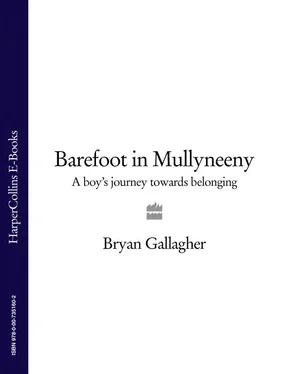
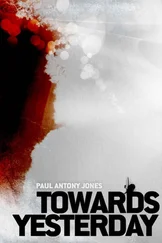

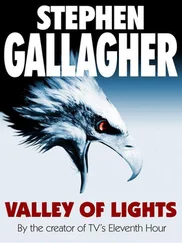
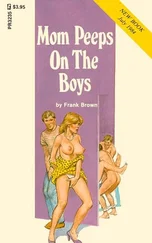
![Ally Carter - [Gallagher Girls 02 ] - Cross My Heart & Hope To Spy](/books/262178/ally-carter-gallagher-girls-02-thumb.webp)



